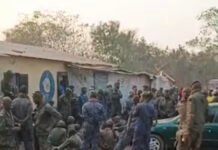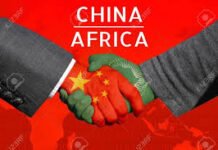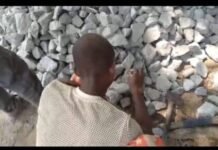Following a year of implementation of the ‘Sierra Leone Democracy Strengthening Programme’, International IDEA and its partners, recently organized a programme review workshop that brought together boundary partners, the donor and other actors in the governance space in Sierra Leone to review progress and challenges in the programme implementation, and to set priorities in response to the post-election context in the country.
The event, held from 6 to 8 November 2023 at the Country Lodge Hotel in Freetown, was aimed at assessing the programme’s progress and re-strategizing on adapting it to address evolving priorities and changing dynamics in Sierra Leone’s post-election landscape.
The Senior Elections Programme Officer at International IDEA’s Africa and West Asia Office, Olufunto Akinduro, emphasized the organization’s commitment to enhancing democracy globally. She noted that while the 2023 elections were a focal point, the programme extended beyond electoral events to encompass broader democratic strengthening in Sierra Leone. Olufunto highlighted the collaborative efforts with partners and the programme’s flexibility in adapting it to the changing political context.
“Before the initiation of this EU-funded programme, International IDEA engaged in activities with the Electoral Commission for Sierra Leone (ECSL) on electoral risk management—a crucial tool for promoting peaceful elections’’. Looking ahead, Olufunto outlined the programme’s objectives, emphasizing on adapting to contextual issues in the next phase. This includes supporting legal reforms, the aftermath of the peace dialogues, and providing technical support to key democratic institutions.
Serena Bertaina, Head of Governance and Civil Society at the European Union (EU) Delegation in Sierra Leone, expressed satisfaction with the partnership formed with International IDEA over a year ago. “The program, established in collaboration with Sierra Leone authorities, concentrates on providing pre-electoral support to electoral management bodies and extending resources and technical expertise to various democratic institutions and organizations”.
Bertaina stressed the EU’s substantial investment in the programme and its ongoing commitment to defending democracy. “The program is set to continue for a substantial period, and the EU’s investment in it is considerable. However, as is customary, once an election concludes, we must assess what has been accomplished and look ahead to safeguard democracy. We operate not in a vacuum; numerous election observers were deployed in Sierra Leone post-election. Of course, we represent the EU, so we look at the EU observation mission recommendations with special attention. Additionally, we consider the recommendations of the national election observers and regional organizations. It is now for you to deliberate, assess what the program has achieved with your organizations to strengthen the system, and determine where we can further support the implementation of electoral observation recommendations.”
Dr Idrissa Mahmoud Tarawallie, International IDEA’s Head of Country Programme for Sierra Leone, presented an overview of the programme during the workshop. He discussed successes and challenges in the early stages of implementation, as well as in the lead-up to the election and its aftermath. Dr Tarawallie highlighted the programme’s delivery mode, status and activities completion rates for the first and second years.
Informed by recommendations from the European Union Observation Mission (EUOM) Report on the 2023 Elections, International IDEA engaged in constructive discussions, aligning and proposing collective program priorities with partner institutions. These partners included the Political Parties Regulation Commission (PPRC), Electoral Commission for Sierra Leone (ECSL), National Council for Civic Education and Democracy (NaCCED), National Commission for Democracy (NCD), Independent Media Commission (IMC), Sierra Leone Association of Journalists (SLAJ), National Elections Watch (NEW), Independent Radio Network (IRN), 50/50 Group among others.
At the end of the three-day review, recommendations on the adaptation of the programme were developed into an options paper, which was submitted to the donor on Thursday, 9 November 2023. Feedback from the donor indicates a possible programme extension to November 2026 with additional funding.




